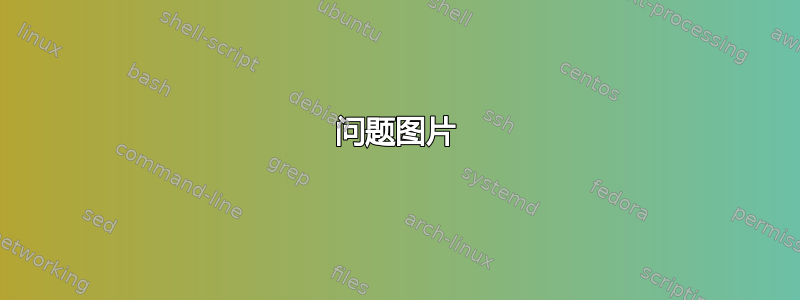
我遇到了一个奇怪的问题。出于某种原因,我编译得越多,节点内的文本位就会被推得越来越靠右。如果我激活overlay自定义命令的选项,垂直间距就会变成假的,这又带来了另一个麻烦。
我怎样才能使节点内的文本左对齐(黑框式摇动)?
问题图片
平均能量损失
% !TeX spellcheck = en_Us
\documentclass[
a4paper,
DIV=15,
german,
%landscape,
%footheight=10pt,
fontsize=10pt,
]{scrartcl}
\usepackage[english]{babel}
\usepackage[T1]{fontenc}
\usepackage[utf8]{inputenc}
\usepackage{tikz}
\usepackage{tikzpagenodes}
\usetikzlibrary{
backgrounds,
positioning,
calc,
matrix
}
\pgfdeclarelayer{background}
\pgfdeclarelayer{foreground}
\pgfsetlayers{background,main,foreground}
\newlength{\xdistance}
\setlength{\xdistance}{4pt}
\newlength{\yAbstand}
\setlength{\yAbstand}{10pt}
\newcommand{\specialsec}[1]{%
%\raisebox{-0.2\height}{%
\begin{tikzpicture}[
remember picture=true,
% overlay,
]
\node[
% xshift=-5pt,
%draw=\specialsechintergrund,
inner xsep=0pt,
outer xsep=0pt,
inner ysep=2pt,
outer ysep=2pt,
font=\LARGE\rmfamily,
text=black,
%text=white,
align=left,
anchor=south west,
% yshift=-1.0cm,
% minimum height=1.85cm,
%xshift=2em,
]
(AbschnittNode) {%
#1%
};%
%### Nodes/Koordinaten für Abschnittsüberschrift setzen
\draw[
inner xsep=0pt,
outer xsep=0pt,
inner ysep=0pt,
outer ysep=0pt,
]
($(AbschnittNode.west -| current page text area.west)+(\xdistance,\yAbstand)$) coordinate (AbschnittBoxRO)
($(AbschnittNode.west -| current page text area.west)+(\xdistance,-\yAbstand)$) coordinate (AbschnittBoxRU)
($(AbschnittNode.west -| current page text area.west)+(0pt,-\yAbstand)$) coordinate (AbschnittBoxLU)
($(AbschnittNode.west -| current page text area.west)+(0pt,\yAbstand)$) coordinate (AbschnittBoxLO)
;
\begin{pgfonlayer}{foreground}
\fill[
inner sep=0pt,
outer sep=0pt,
fill=black,
]
($(AbschnittBoxLO -| current page text area.west)+(-\xdistance,0pt)$) rectangle ($(AbschnittBoxLU)+(0,-0.8pt)$);
\end{pgfonlayer}
\draw[
ultra thick,
black,
] ($(AbschnittBoxLU -| current page text area.west)+(0,0)$) -- ($(AbschnittBoxRU -| current page text area.east)+(0pt,0)$);
\end{tikzpicture}%
}
\listfiles
\begin{document}
Here are some words to form some random text.
1: The quick brown fox jumps over the lazy dog.
2: The quick brown fox jumps over the lazy dog.
3: And more words. Not really making sense.
4: Again the thing with the quick brown fox.
\begin{flushleft}
\specialsec{Something words}
\end{flushleft}
Here are some words to form some random text.
1: The quick brown fox jumps over the lazy dog.
2: The quick brown fox jumps over the lazy dog.
3: And more words. Not really making sense.
4: Again the thing with the quick brown fox.
\begin{flushleft}
\specialsec{Another thing}
\end{flushleft}
Here are some words to form some random text.
1: The quick brown fox jumps over the lazy dog.
2: The quick brown fox jumps over the lazy dog.
3: And more words. Not really making sense.
4: Again the thing with the quick brown fox.
\end{document}
答案1
overlay只有在实际引用时才需要current page text area,因此将其添加到您的\fills 和\draws 中,您会得到:
但是,您实际上并不需要remember picture该current page text area节点。
您确切地知道文本区域的左侧在哪里。 那就是您放置 TikZ 图片的地方。 只需将您想要的内容放在图片的左侧即可。
而且你也知道右侧在哪里,它\textwidth比左侧更靠右。
代码
% !TeX spellcheck = en_Us
\documentclass[a4paper, DIV=15, german, fontsize=10pt]{scrartcl}
\usepackage[english]{babel}
\usepackage[T1]{fontenc}
\usepackage{tikz}
\newlength{\xdistance}
\setlength{\xdistance}{4pt}
\newlength{\yAbstand}
\setlength{\yAbstand}{10pt}
\tikzset{
specialsec node/.style={
inner sep=+0pt, inner ysep=+2pt, font=\LARGE\rmfamily,
text=black, align=left, anchor=base},
specialsec left/.style=black,
specialsec line/.style=ultra thick}
\newcommand{\specialsec}[2][]{%
\par\bigskip\noindent
\begin{tikzpicture}[baseline, trim left=(sol), trim right=(eol),#1]
\node[specialsec node] (AbschnittNode) {#2};
\fill[specialsec left]([shift=(AbschnittNode.west)]0pt,\yAbstand)
rectangle +(-\xdistance,-2\yAbstand) coordinate (sol);
\draw[specialsec line] ([xshift=+\xdistance,yshift=+.5\pgflinewidth]sol)
-- +(right:\textwidth) coordinate (eol);
\end{tikzpicture}%
\par\bigskip}
\listfiles
\begin{document}
Here are some words to form some random text.
1: The quick brown fox jumps over the lazy dog.
2: The quick brown fox jumps over the lazy dog.
3: And more words. Not really making sense.
4: Again the thing with the quick brown fox.
\specialsec{Something words}
Here are some words to form some random text.
1: The quick brown fox jumps over the lazy dog.
2: The quick brown fox jumps over the lazy dog.
3: And more words. Not really making sense.
4: Again the thing with the quick brown fox.
\specialsec[specialsec line/.append style=green]{Another thing}
Here are some words to form some random text.
1: The quick brown fox jumps over the lazy dog.
2: The quick brown fox jumps over the lazy dog.
3: And more words. Not really making sense.
4: Again the thing with the quick brown fox.
\end{document}
输出
答案2
tcolorbox您也可以在这种环境中使用。我认为这比您的建议更简单。
% !TeX spellcheck = en_Us
\documentclass[
a4paper,
DIV=15,
german,
%landscape,
%footheight=10pt,
fontsize=10pt,
]{scrartcl}
\usepackage[english]{babel}
\usepackage[T1]{fontenc}
\usepackage[utf8]{inputenc}
\usepackage[most]{tcolorbox}
\newtcolorbox{myspecialsec}[1][]{%
sharp corners,
fontupper=\LARGE\rmfamily,
leftrule=4pt,
bottomrule=2pt,
toprule=0pt,
rightrule=0pt,
halign=left,
boxsep=1pt,
left=0pt,
bottom=0pt,
top=0pt,
colback=white,
#1
}
\listfiles
\begin{document}
Here are some words to form some random text.
1: The quick brown fox jumps over the lazy dog.
2: The quick brown fox jumps over the lazy dog.
3: And more words. Not really making sense.
4: Again the thing with the quick brown fox.
\begin{myspecialsec}
Something words
\end{myspecialsec}
Here are some words to form some random text.
1: The quick brown fox jumps over the lazy dog.
2: The quick brown fox jumps over the lazy dog.
3: And more words. Not really making sense.
4: Again the thing with the quick brown fox.
\begin{myspecialsec}[colframe=red!70!black]
Another thing
\end{myspecialsec}
Here are some words to form some random text.
1: The quick brown fox jumps over the lazy dog.
2: The quick brown fox jumps over the lazy dog.
3: And more words. Not really making sense.
4: Again the thing with the quick brown fox.
\end{document}






